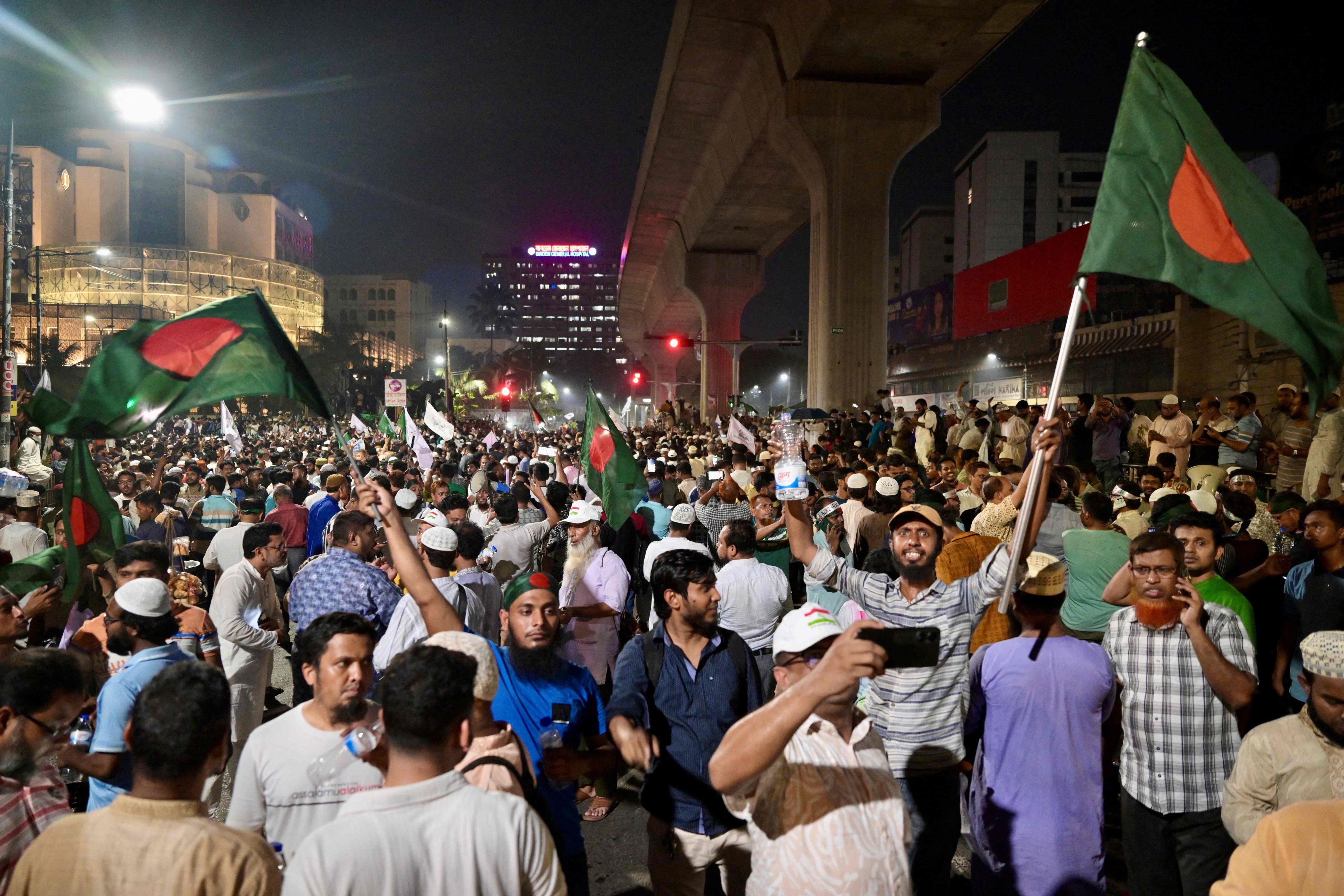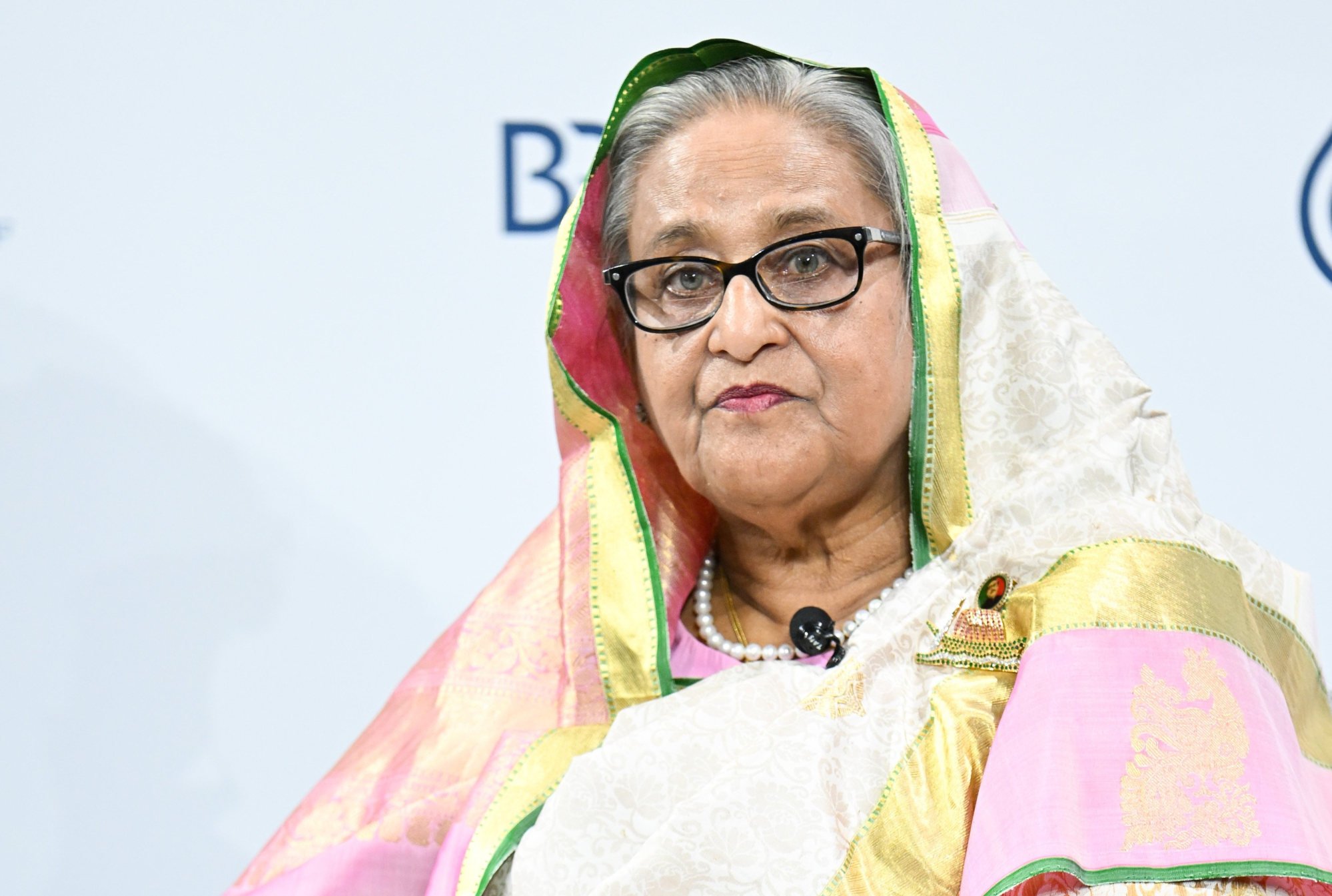Bangladesh ban on Hasina’s Awami League deepens uncertainty amid strained ties with India
Ban could raise concerns of democratic freedoms in Bangladesh and that Dhaka may be drawing closer to Pakistan, analysts say

A move by Bangladesh’s interim government to bar the former ruling Awami League – the party of ousted leader Sheikh Hasina – from political activity has deepened uncertainty over coming elections and drawn unease from neighbouring India.
The ban, announced last week by the administration of Nobel Peace Prize laureate Muhammad Yunus, is tied to proceedings at Bangladesh’s International Crimes Tribunal, which is investigating allegations that Hasina and several top aides orchestrated a violent crackdown on demonstrators.
The party, one of the country’s two dominant political forces, has been barred from holding rallies or contesting elections until the tribunal concludes its inquiry.
India – where Hasina has taken refuge following her removal from office in student-led protests last year – has expressed alarm over the implications of the ban for Bangladesh’s political future, warning that the move could undermine democratic norms in the region.
“As a democracy, India is naturally concerned at the curtailment of democratic freedoms and shrinking political space,” Ministry of External Affairs spokesman Randhir Jaiswal said on Tuesday. “We strongly support the early holding of free, fair and inclusive elections in Bangladesh.”
Dhaka, however, pushed back swiftly. Shafiqul Alam, a top aide to interim leader Yunus, said the country’s electoral process was “an internal matter” and defended the decision as being in the interest of national security and sovereignty.

The Awami League is the oldest political party in Bangladesh and led the country’s liberation war from Pakistan in 1971 that was supported by India. Hasina, the daughter of Bangladesh’s independence leader Sheikh Mujibur Rahman, has been flayed by her detractors for her authoritarian rule.
Analysts say it will be hard for the Awami League to regain support from voters after Hasina was accused of carrying out a campaign to silence the opposition between July and August last year, but an outright ban will mar forthcoming elections by virtually making the Bangladesh Nationalist Party (BNP) the sole contender.
“I think the interim government in Bangladesh is giving in to students’ demands. But if the BNP had the Awami League contesting the elections, then it would have been better for Bangladesh,” said Sreeradha Datta, an international relations professor at Jindal Global University in India’s Haryana.
The participation of only one mainstream political party in elections was bound to raise concerns about the process of democracy in Bangladesh, she said. “I feel that the elections will be pushed further down the road,” Datta added.
Bangladesh’s interim government has said that fresh elections will be conducted any time between later this year and the middle of 2026.
Datta said Dhaka might have enforced the ban because the judicial process could take a long time to complete.
“I feel that this [ban on Awami League] is a temporary thing and it is not a lifelong ban,” she added.
In the meantime, the interim government could prioritise other areas of governance, such as pushing economic reforms to boost the country’s growth until the dust settled on the political environment, she said.

Once one of the best-performing economies in South Asia, Bangladesh has been trying to put its economy back on the rails since pandemic-induced disruptions to supply chains affected livelihoods and increased the cost of living. Its crucial garment exports are also facing imminent higher US tariffs.
Despite the Awami League losing popularity in Bangladesh, the aftermath of the ban could lead to more instability in the country because the party’s traditional voter base is close to about a third of the electorate, according to Datta.
Political parties in Bangladesh must be registered with the election commission to engage in political activities, including taking part in elections. The Awami League is facing a ban for the third time.
The Awami League has railed against the ban in statements on social media platform X, saying the goal is to keep the party out of contention in national elections.
The latest ban, coming close on the heels of a military conflict between India and Pakistan, has raised alarm bells in New Delhi because it is apprehensive that the current political instability in Bangladesh may push the country closer to Pakistan amid simmering resentment over the Awami League, analysts say.
“It [the ban] is directly targeting Sheikh Hasina, who is in exile and staying in India. So it is a signal,” said Priyajit Debsarkar, a London-based author who specialises in writing about Bangladesh and Pakistan, noting that the decision followed within hours of an India-Pakistan ceasefire last weekend.
Ties with Bangladesh have also been troubled by Delhi’s concerns about violence against Hindu minorities amid the social unrest, an allegation that Dhaka has rejected and says the concerns have been exaggerated by the Indian media.
“There seems to be a credible and enormous pressure under which the interim government has had to yield,” Debsarkar said, adding that the development raised doubts about the manner in which the coming elections would be conducted.